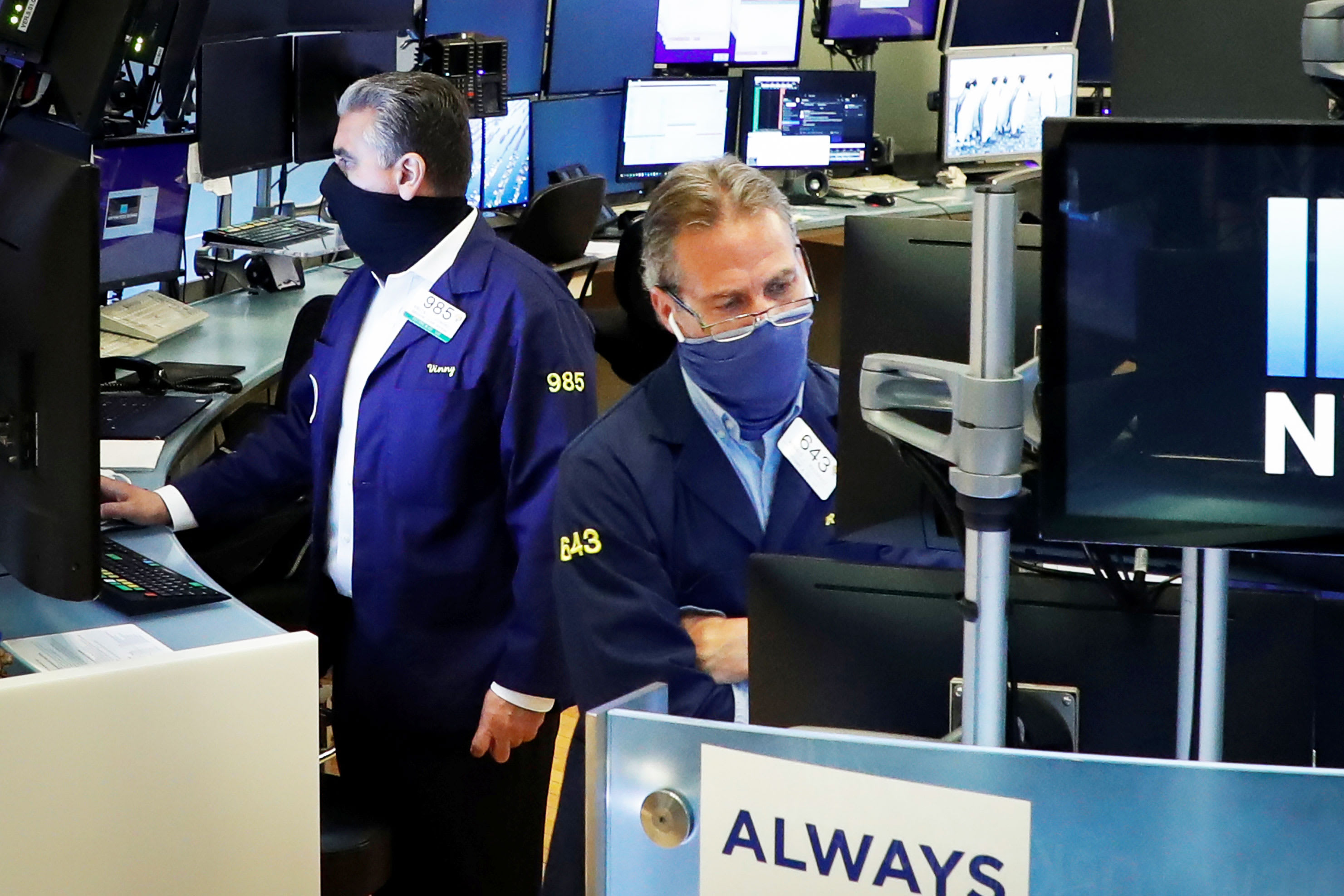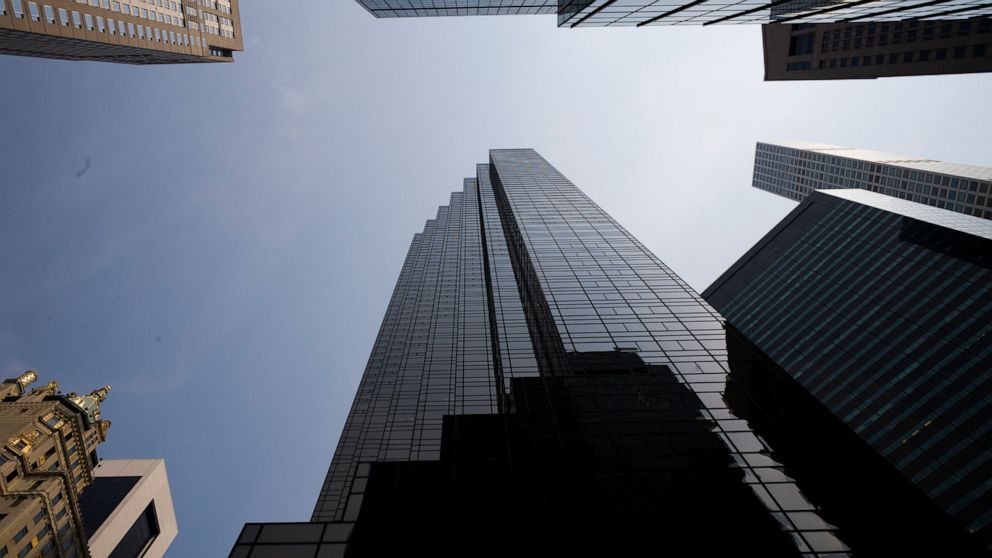
Traders wearing masks on the floor at the New York Stock Exchange.
Brendan McDermid | Reuters
A fiscal stimulus package is the one thing that could put the stock market on an upward trajectory into the election, but some strategists say the odds of that happening are still rather low.
President Donald Trump, within hours Tuesday, both dashed hopes for a stimulus package by calling off administration talks with Democrats, and then rekindled them by tweeting about aid to airlines and other smaller targeted packages.
The Dow was up 1.8% Wednesday after Trump triggered a sharp sell-off Tuesday. But that has not changed the dynamic for markets, and stocks are still expected to trade in a choppy, volatile fashion until the outcome of the election is clear.
“I’m surprised that everybody is all bulled up about it again,” John Briggs, head of strategy at NatWest Markets.
Some see the disagreement over what’s in the package as insurmountable in the short-term, and they do not expect a compromise in Congress until after the election. One reason is Senate Republicans, who have sought a much smaller package than even the White House, have the Supreme Court nomination on their calendar and will be occupied.
Democrats have sought a $2.2 trillion package that would provide funds for individuals, help businesses and provide aid to state and local governments. The White House has said it would agree to $1.6 trillion package.
“Stimulus isn’t not going to happen. It’s just that the timing is not that clear. And that’s a situation where I think the market is going to be able to look through it ultimately,” said Tom Lee, founder of Fundstrat. “It’s not like one side or the other doesn’t want stimulus. The sticking point is the ultimate magnitude.”
Lee said the market would soar if the two sides were to come to an agreement on stimulus. But it would still be positive, if there were a successful piecemeal approach. “It shows a sense of urgency,” he said.
But no bill would be problematic. “I think the economy is in a rough spot right now because there are still a lot of restrictions, and I think people are pretty fearful of going out, so it’s important to get some sort of bridge until the economy comes back,”uld also not be helpful if it took until next year. “First quarter would be really terrifying. I think equities aren’t comfortable in the short term with uncertainty. That’s why the election is creating a lot of turmoil as well,” Lee said.
But Lee said post-election, investors would probably invest in the same way regardless of who wins. Both candidates would be expected to push a big spending program right away, on top of the Covid relief.
House Speaker Nancy Pelosi has said she would consider a smaller bill just aimed at airlines, but the bill was blocked by Republicans late last week. Yet after the Trump tweet, airline stocks were flying on hope for more aid, with Delta up more than 3% and United Airlines up more than 4.5%.
“The markets are highly emotional here. You almost wonder if they’ve got Covid themselves. The movements are a greater magnitude than you would think, given the news,” said Chris Rupkey, chief financial economist at MUFG Union Bank. “As an economist I don’t know how much stimulus is necessary at this stage. It’s still going to be a slog. It would be nice if we could get those $600 a week unemployment checks back to people without work.”
Rupkey said it seems too many people have to agree to the fiscal stimulus and it’s not likely to get finished by the Nov. 3 election.
“I think investors should realize here there’s probably not going to be a deal anyway until we see the results on Nov. 3. A lot of this is we’re coming back from a 10% sell-off sot here’s some momentum from people getting back in after the sell-off. There’s a discount and they want to get back in. It could be on the flimsiest of headlines.”
Julian Emanuel, head of equity and derivatives strategy at BTIG, said the market is vulnerable because of the lack of stimulus and it could decline to a point where it tests its 200-day moving average, at 3,113, about 7% below Tuesday’s close of 3,360. The S&P was up 1.6% Wednesday.
“Trump and his opponents know history- when the market has been higher in the 90 days prior to the election, the incumbent has won 85.7% of the time,” ‘Emanuel said in a note. “Conversely, when the market is down in September and October cumulatively prior to an election (3,500) is the level to watch), incumbent party has lost on 6 of 6 elections.”
Sam Stovall, CFRA chief investment strategist, said there may be an exception to that rule this year, if former vice president Joe Biden is to win the election and it would be due to the uncertainty of Covid. He said there were overriding factors impacting the election in 1968, with the Vietnam War and 1980, the Iran hostage crisis. In both those years, the incumbent or incumbent party were ousted.
Stovall said he is skeptical that Trump can push through smaller stimulus relief, and the market could cotninue to have its negative moments. “The bias remains neutral for large stocks and so the market could be vulnerable to additional disappointments,” he said. “Congress controls the purse strings…Can [Trump] really say ‘I’m going to get this and that…It just seems like empty words.'”
Stovall said if there was a coming together, the market could break out. “It’s just a reminder that October is by far the most volatile month of the year, with a standard deviation of returns that is 36% higher than the average for all other months,” he said.

